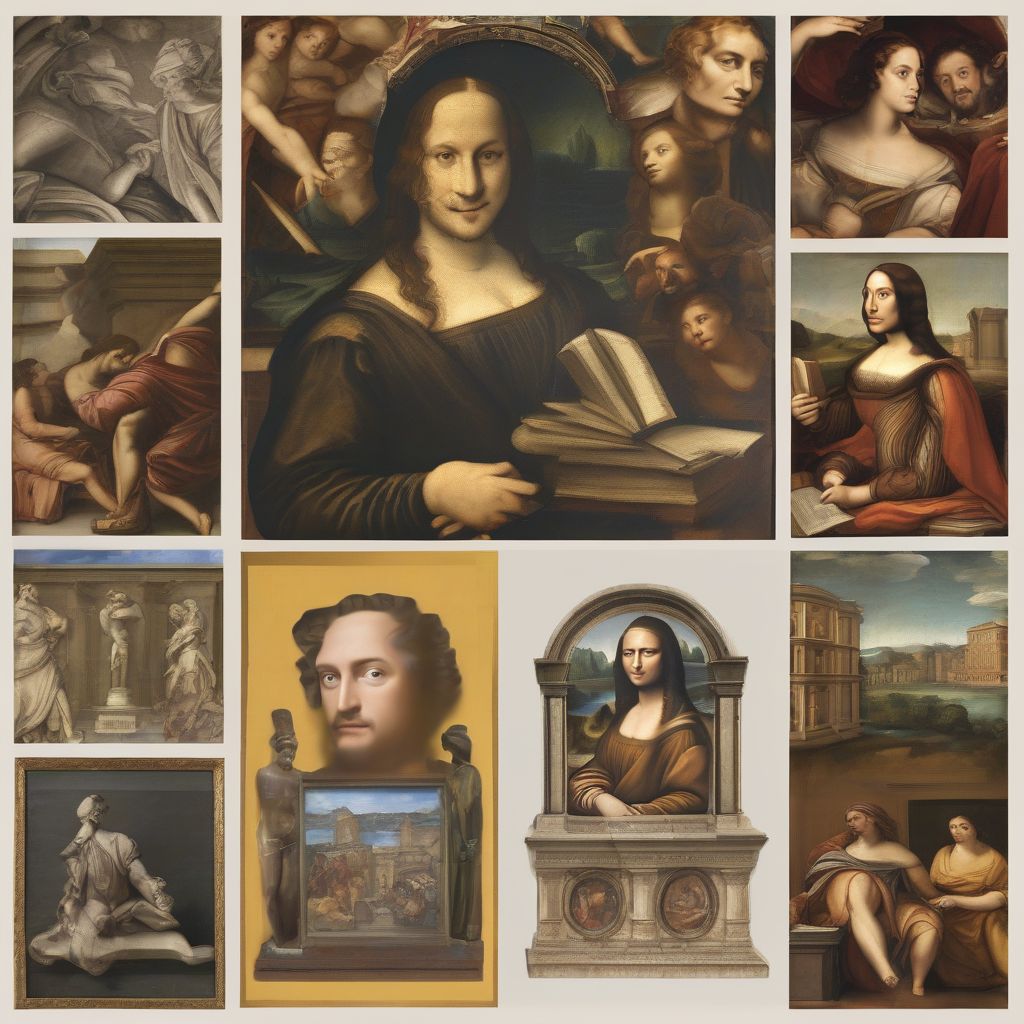Have you ever found yourself engrossed in a book, completely transported to another time and place? Perhaps you were swept away by the romanticism of Jane Austen, captivated by the stark realism of Charles Dickens, or challenged by the modernist prose of Virginia Woolf. These powerful reading experiences are the result of skillful writers working within, and sometimes even defying, established literary movements. These movements, often led by iconic authors, have shaped the way we understand literature and continue to influence writers today.
A Journey Through Time: Exploring Major Literary Movements
Just like fashion or music, literature experiences shifts in style, themes, and philosophical approaches. These shifts, often responding to historical events or cultural changes, coalesce into movements that define specific periods. Let’s delve into some of the most significant of these movements:
1. Classicism (Ancient Greece and Rome)
Think grand epics, tragic heroes, and a focus on balance and reason. This influential movement, birthed in ancient Greece and Rome, laid the foundation for Western literature.
- Key Characteristics: Emphasis on reason, order, and objectivity. Themes of morality, fate, and the search for truth.
- Iconic Authors: Homer (“The Odyssey,” “The Illiad”), Sophocles (“Oedipus Rex,” “Antigone”), Virgil (“The Aeneid”).
- Lasting Influence: Provided archetypes (like the tragic hero) and themes that echo throughout literary history. Influenced the structure and form of many later works.
2. The Renaissance (14th-16th Centuries)
As Europe emerged from the Middle Ages, a renewed interest in classical learning and a focus on human potential fueled this transformative period.
- Key Characteristics: Humanism (celebrating human achievement), a revival of classical forms, exploration of love, beauty, and the nature of humanity.
- Iconic Authors: William Shakespeare (“Hamlet,” “Romeo and Juliet”), Michelangelo (poetry), Miguel de Cervantes (“Don Quixote”).
- Lasting Influence: Reinvigorated Western literature, paving the way for new ideas and forms of expression.
 Renaissance Art and Literature
Renaissance Art and Literature
3. Romanticism (Late 18th – Early 19th Centuries)
A reaction against the Enlightenment’s emphasis on reason, Romanticism celebrated emotion, imagination, and the power of the individual.
- Key Characteristics: Intense emotion, a reverence for nature, idealization of the past, exploration of the sublime and the supernatural.
- Iconic Authors: Jane Austen (“Pride and Prejudice”), William Wordsworth (“I Wandered Lonely as a Cloud”), Mary Shelley (“Frankenstein”).
- Lasting Influence: Shaped our ideas about love, nature, and the importance of individual expression.
4. Realism (19th Century)
As the Industrial Revolution transformed society, realism emerged to portray the lives of ordinary people with unflinching accuracy.
- Key Characteristics: Focus on everyday life, detailed descriptions of society, emphasis on character development, exploration of social issues.
- Iconic Authors: Charles Dickens (“Oliver Twist,” “A Tale of Two Cities”), Leo Tolstoy (“War and Peace,” “Anna Karenina”), George Eliot (“Middlemarch”).
- Lasting Influence: Gave voice to the marginalized and brought social injustices to light through literature.
5. Modernism (Late 19th – Mid 20th Centuries)
The horrors of World War I and rapid societal changes led to a sense of disillusionment and fragmentation reflected in this experimental movement.
- Key Characteristics: Experimentation with form and style, stream-of-consciousness narration, exploration of alienation and the human condition.
- Iconic Authors: T.S. Eliot (“The Waste Land”), James Joyce (“Ulysses”), Virginia Woolf (“Mrs. Dalloway”, “To the Lighthouse”).
- Lasting Influence: Revolutionized literary expression, pushing the boundaries of traditional storytelling.
[amazon bestseller=”literary movements”]
Beyond the Big Names: Understanding the Ripple Effect
While we’ve focused on a few key movements and authors, it’s crucial to remember that literary history is a rich tapestry woven together by countless writers and thinkers. Movements overlap, influence one another, and often spark counter-movements. For example, postmodernism, a reaction against the perceived elitism of modernism, embraced irony, playfulness, and a blurring of boundaries between high and low culture.
Why Does It Matter?
You might be wondering why we should care about literary movements at all. After all, can’t we simply enjoy a good book without overanalyzing it? Of course, we can! But understanding the context in which a book was written – the prevailing literary trends, the social and historical influences – can deepen our appreciation and unlock new layers of meaning.
The Conversation Continues
Literary movements are not static artifacts of the past; they are ongoing conversations that continue to shape how we write and read today. By engaging with these movements, we become part of that conversation, developing a richer understanding of ourselves, our world, and the power of storytelling.
What are your favorite literary movements and authors, and how have they impacted your reading experience? Share your thoughts in the comments below!
